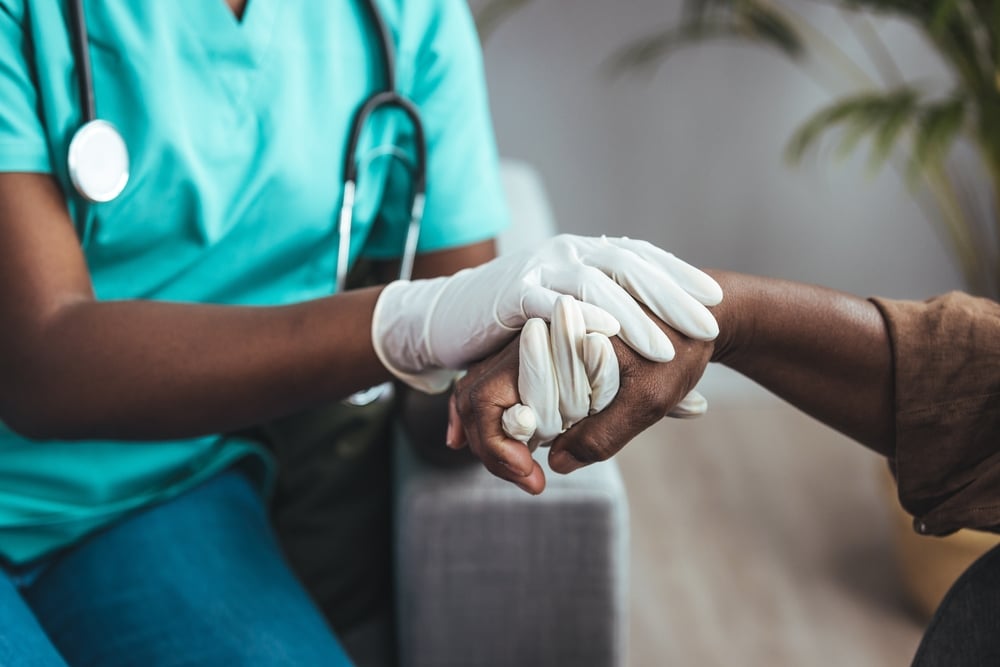Surprise your doctor during the next appointment by coming prepared with questions they want to hear from their patients.
#1 WHAT CAN I DO TO PREVENT FUTURE HEALTH PROBLEMS?

Once you have finished your annual check-up or you have recovered from an illness, you can ask your doctor about your future and how to prevent issues in the upcoming years.
This question about the future is not groundbreaking, but it is an excellent opening and creates a sense of trust between you and your doctor. It also implies you are not running away from taking full responsibility for your well-being.
#2 ARE MY BLOOD SUGAR LEVELS HEALTHY?

One of the most common causes of premature deaths in Americans is caused by diabetes. Type 2 diabetes can be avoided with regular activities, proper diet, and healthy choices.
Ask your doctor whether your blood sugar levels are normal and whether you should do a test for insulin resistance or prediabetes.
There is no cure for diabetes; it can cause a risk of developing heart disease, stroke, foot problems, eye, and kidney disease, among others.
#3 HOW ARE MY CHOLESTEROL LEVELS?

Bad cholesterol, or low-density lipoprotein, can affect your heart and even leads to stroke.
Though it is often linked to unhealthy diets, there are numerous other causes of LDL. Like diabetes, it is usually caused by stress, too much alcohol, smoking, etc.
Regulating your cholesterol levels can prevent severe disease, and you should know how to prevent it from increasing.
#4 HOW IS MY THYROID FUNCTION?

The thyroid gland regulates your body’s metabolism. Even the smallest changes can cause a ripple effect.
Everything in your body is connected perfectly, like in a well-oiled machine. However, if one thing starts causing problems, the others will be affected.
#5 IS MY WEIGHT HEALTHY, AND SHOULD I CONSIDER CHANGES IN MY DIET?

Rapid loss or weight gain are reasons for you to see your doctor.
But even if you have maintained similar weight throughout the years, our bodies require adjustments to our diets and workouts as we age. Ask your doctor about this, especially if your body is changing, such as menopause.
#6 WOULD YOU EXPLAIN SPECIFIC MEDICAL TERMS RELATED TO MY CONDITION?

Your doctor wants you to ask if you have any questions regarding your medical status. There are no stupid questions, only medical terms which are not easy to understand.
Politely ask your doctor to explain what a particular diagnosis means in your case or any other question you found in your doctor’s report
#7 I WANTED TO START TAKING SUPPLEMENTS, WHICH ONES WOULD YOU RECOMMEND?

Before taking supplements, ask your doctor about recommendations, medication interactions, and possible side effects.
Your doctor may ask you to do more blood tests to determine whether you need a mineral or vitamin, or they will advise you to change your diet and try to improve your health naturally.
#8 CAN I USE ALTERNATIVE MEDICINE TO HELP WITH MY CONDITION?

Contrary to what many believe, doctors are not against alternative medicine. They will gladly share their knowledge and give you guidelines for your next steps.
You can ask your doctor, point blank, whether something you have been thinking about has any medical value or if any research has been linked to it.
#9 DO I NEED THIS MEDICATION, OR CAN I TRY SOMETHING ELSE?

If you are worried about taking medication, ask your doctor. Ask about food and beverage interactions, how this medication will interfere with your supplements or other drugs, and possible side effects.
You should know why you’re taking a drug, what to expect, and how long people usually take it.
#10 WHAT SIDE EFFECTS ARE MOST COMMON WHILE TAKING THIS MEDICATION?

Side effects can sometimes feel worse than the condition that the medication is treating. That is why you should ask your doctor about plan B, switching to a different medication, or adjusting the dosage.
Ask your doctor if you need to take a few days off work when starting a new drug and which side effects you should pay special attention to.
#11 CAN WE TALK ABOUT MY FAMILY HISTORY?

Your GP should be aware of all significant health issues in your family. It is essential to educate yourself, and your doctors want you to ask these questions so they can create a plan so you can postpone or reduce the risk of certain health conditions.
Among the most common genetically linked diseases are cancer, heart conditions, risks of developing depression, and dementia. While you cannot always beat your family treats, you can learn more about these conditions to postpone them.
#12 ARE THERE ANY PRECAUTIONS TO TAKE AGAINST THAT ILLNESS IN MY FAMILY?

If you have already discussed your family’s medical history, you should ask your doctor about your options.
Healthcare professionals may recommend more frequent screening (such as mammography or colonoscopy) starting at an earlier age for people at an increased risk of specific cancers.
#13 WHAT CAN I DO FOR MY HEART HEALTH?

Heart failure does not happen overnight. Taking care of your heart is undoubtedly on the list of questions to ask your doctor.
Based on your overall health, age, and weight, they might advise you on how to protect your heart in the upcoming years and decades. This is personal advice, so what works for one person might not work for you.
#14 ARE THERE ANY ACTIVITIES I SHOULD AVOID?

Exercising and living an overall healthy lifestyle are every doctor’s orders. However, if you plan to start taking Zumba classes, it may be best to ask your doctor about this particular form of exercise.
If you have osteoporosis or heart disease, you know you should have a certain level of physical activity, but only your doctor knows how much you should exercise and which type of workout will benefit you.
#15 WHICH TESTS DO I NEED?

EEG, mammography, ultrasonography, and MRI, are all standard tests to help a doctor find your diagnosis.
Some are also part of the regular health screenings, and though unpleasant, they are not painful. However, you need to ask your doctor which tests you need based on blood results, family history, and overall concerns.
#16 CAN THIS TEST DIAGNOSE A PROBLEM, OR WILL I NEED FURTHER TESTING?

Testing is only part of determining a diagnosis. Ask your doctor about all the necessary steps and whether you will need more testing,
Though they are only part of the diagnostical process, screening tests are crucial and can often exclude numerous conditions and detect irregularities or potential issues.
#17 DO I NEED TO PREPARE FOR THE TEST?

Some tests require specific preparations. If your doctor did not say anything, it usually means you do not need special preparations. But, to be on the safe side, you should ask your doctor about the particular test you will have.
Usually, you should come well rested for a medical check-up or screening, with an empty stomach if the doctor does not say otherwise, and avoid alcohol at least 24 hours before the appointment.
#18 IS THIS CONDITION PERMANENT?

To better understand your diagnosis, you could ask whether your condition is permanent and what you can do to keep your body as healthy as possible.
With discipline, many illnesses can be almost completely reversed.
That is why you need to ask your doctor how to help yourself. For example, insulin resistance is reversible, while osteoporosis is not, but you can rebuild and slow down bone loss with medications, diets, and other medical advice.
#19 I AM SCARED OF THAT PROCEDURE, COULD YOU WALK ME THROUGH IT?

If you are scheduled for surgery or a colonoscopy, it is normal to feel anxious and to have questions.
Ask your doctor to walk you through it in a simple manner.
If you are worried about anesthesia, express your concerns.
It may seem trivial, but if it causes stress, it is better to talk to your doctor than to google your procedure only to find half-truths and numerous worst-case scenarios.
#20 WHICH WEBSITES ARE TRUSTWORTHY?

Your doctors want you to ask questions rather than coming and telling them what you read on Dr. Google.
That’s why it is good to know which websites can be helpful and carry a seal of doctors’ approval.
Not all resources are equal, and what you read on Facebook or hear on TikTok might be potentially dangerous to your health. You cannot always call your doctor, so you need to know where to find facts and learn to distinguish them from fiction.
Read Next: What Really Causes Donald Trump’s Skin to be So Orange

Former President Donald Trump’s distinctive orange skin has captivated attention, sparking curiosity about its evolution from average pale over the years:
What Really Causes Donald Trump’s Skin to be So Orange
27 Things MAGA Movement Ruined Forever for People

How the MAGA movement left its mark on individuals and disrupted certain aspects of our everyday life forever:
27 Things MAGA Movement Ruined Forever for People
Court Finally Unseals Secretive Case of Jan 6 Offender

Samuel Lazar sentenced for Jan. 6 insurrection; previously confidential case now revealed: Court Finally Unseals Secretive Case of Jan 6 Offender
Defamation lawsuit against Kari Lake advances while people compare her to Rudy Giuliani

Kari Lake loses First Amendment right to accuse Maricopa County recorder; Arizona Republic ponders if she’s channeling Rudy Giuliani in her sleep : Defamation lawsuit against Kari Lake advances while people compare her to Rudy Giuliani
More Democrats are flipping in a crucial swing state than Republicans

In Pennsylvania, a significant number of registered Democrats flipping is sending an unflattering signal to President Biden: More Democrats are flipping in a crucial swing state than Republicans










